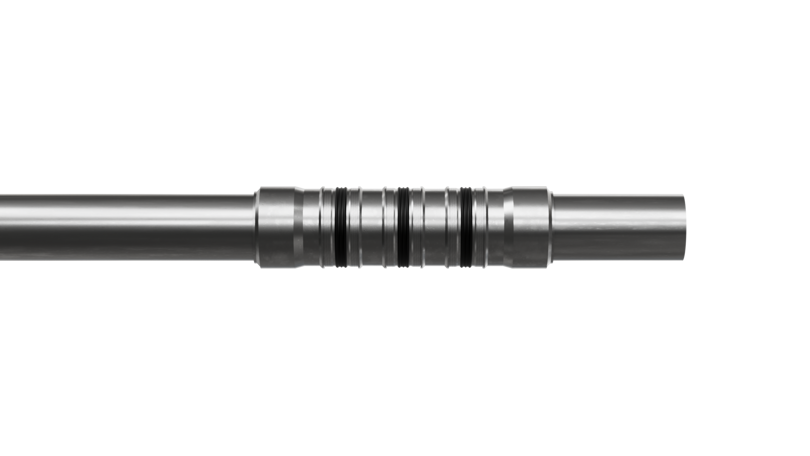
Well type
Polymer injector
Max. deviation
90°
Completion design
Horizontally drilled with four zones
An operator in Prudhoe Bay, Alaska, initiated polymer flooding of the Schrader Bluff formation to enhance recovery of heavy oil. Polymer injection was used to reduce oil viscosity and improve sweep toward producing wells.
The formation comprises heterogeneous, unconsolidated sandstone intervals separated by washed-out shales, presenting challenges to achieving reliable zonal isolation. Previous attempts using swellable packers failed to isolate injection zones effectively, leading to suboptimal sweep efficiency. In addition, worm-holing or matrix bypass events (MBEs) during injection caused early water breakthrough at producers.
Planned injector completions consisted of a 4-1/2” liner in an 8-1/2” open hole, incorporating openhole packers and sliding-sleeve outflow control devices. Post-rig operations, coiled tubing stimulation was designed to shift the sleeves and treat the reservoir prior to polymer flooding. Injection pressures were expected to remain below 3,000 psi.
The operator reported two persistent challenges: (i) ineffective zonal isolation with swellable packers and (ii) uncertain swelling times that delayed injection startup.
Welltec developed a proposal to complete the well/s with multiple 812 Welltec® Light Packer (8-1/2” WLP) units. The solution offered immediate expansion capability, fullbore inner diameter (ID), and a proven track record under comparable conditions. Openhole caliper logs indicated a relatively in-gauge 8-1/2” bore, making the Schrader Bluff wells suitable for WLP deployment.
Four 812WLPs were integrated into the liner string as part of the lower completion and run to total depth without requiring rotation. Because the liner shoe was designed to remain open, packer expansion via liner pressure was not feasible. Expansion was therefore executed using coiled tubing equipped with a stimulation bottomhole assembly (BHA).
After rig release, coiled tubing operations were conducted per plan. The BHA included a stimulation packer and sleeve-shifting tool. The stimulation packer was set, and all four WLPs were expanded successfully using backside pressure from the coiled tubing system. The same BHA was then employed to shift the sliding sleeves and stimulate the near-wellbore.
Surface pressure responses during the treatments confirmed effective zonal isolation, enabling sequential stimulation of each interval.

